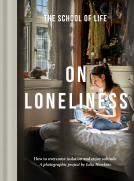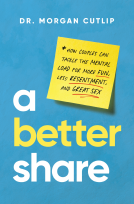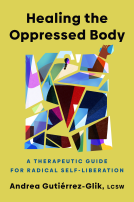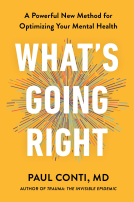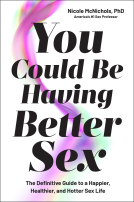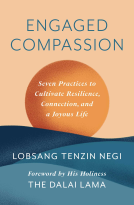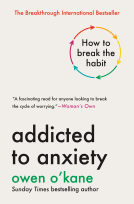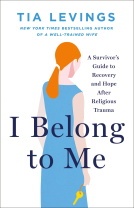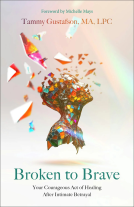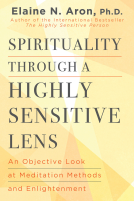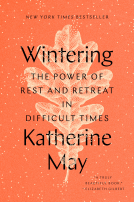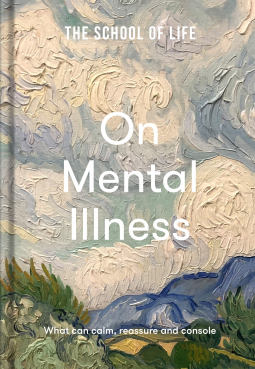
On Mental Illness
What can calm, reassure and console
by
This title was previously available on NetGalley and is now archived.
Send NetGalley books directly to your Kindle or Kindle app
1
To read on a Kindle or Kindle app, please add kindle@netgalley.com as an approved email address to receive files in your Amazon account. Click here for step-by-step instructions.
2
Also find your Kindle email address within your Amazon account, and enter it here.
Pub Date Feb 28 2023 | Archive Date Apr 28 2023
Talking about this book? Use #TheSchoolofLife #NetGalley. More hashtag tips!
Description
A compassionate guide to normalizing mental illness and achieving emotional wellbeing.
This is a guide to coping with a wide variety of mental unwellness, from the very mild to the severe. It explains how and why we become mentally ill, how we can explain our experiences to friends and family, and how we can reframe our view of ourselves and our future in order to thrive.
With a humane, encouraging tone, the book teaches us to dismantle stigmas around mental health, arguing that no one should suffer alone. By normalizing mental illness and seeking out shared experiences and supportive friendships, we feel less alone on our journeys.
Written with kindness, knowledge and sympathy, and drawing upon the experience of The School of Life therapists, this book is an essential tool to help us on the way to our recovery.
Available Editions
| EDITION | Other Format |
| ISBN | 9781912891818 |
| PRICE | $19.99 (USD) |
Available on NetGalley
Average rating from 31 members
Featured Reviews
This short but powerful and provocative read is truly life-changing if you take in the depths of its wisdom. I highly recommend this book that traverses the human mind in all of its glory and potential for mayhem.
On Mental Illness by The School of Life drew me in with its beautiful and calming cover art. It was a good book for me because I am interested in learning and understanding more about mental illnesses, and how better to cope with them. I have a lot of people in my life who suffer from various unwellness, and knowing more about coping strategies will help me to understand them better, and help me to help them.
 Ashley P, Reviewer
Ashley P, Reviewer
On Mental Illness comes from The School of Life, which, according to their website, is “an organisation built to help us find calm, self-understanding, resilience and connection – especially during troubled times.” The book’s introduction says it aims to be “a sanctuary, a walled garden filled with nourishing psychological vegetation, and with comfortable benches on which to sit and recover our strength, in an atmosphere of kindness and fellow-feeling.”
Chapters in the book include reasons to live, acceptance, medication, psychotherapy, self-compassion, and gratitude. There’s a chapter on self-regulation that touches on common issues like sleep, hygiene, and exercise, and also presents the concept of the window of tolerance.
When it comes to the causes of mental illness, I’m anti-reductionism, whether that goes in a biological or psychosocial direction. This book leans pretty hard into psychosocial reductionism in this paragraph, which felt rather reminiscent of Johann Hari’s book Lost Connections:
“We shouldn’t be surprised at the enormous levels of mental illness at large in society; we need only get clear how bad we collectively are at love, how poor we are at lending sympathy, at listening, at offering reassurance, at feeling compassion and at forgiving—and conversely how good we are at hating, shaming, and neglecting… Furthermore, we’ve opted to wash our hands of the issue of love and handed responsibility for healing wholesale to scientists, as though they could culture a complete solution to mental wellness through their medication. We ignore that the cure largely lies in the emotional realm: in getting better at appeasing each other’s fears, at being generous about our transgressions, at no longer tormenting and maltreating one another for our failures and at sitting together through the darkness in a spirit of care and kindly forbearance.”
The chapter on psychotherapy included the decidedly odd section “What benefit is there in your illness?” The book acknowledges that asking this “could sound like the height of nastiness,” but it “can be raised from the kindest and most sincere motives.” One of the example scenarios that’s given is a father acting out of jealousy of “his son’s nascent sexual prowess.” Oh my, how very Freudian! In the same chapter, I found this line interesting: “Most therapists we come across are likely to be less than what they should be.” I don’t necessarily disagree, but “most” was an interesting choice of word.
The book is a quick read, with short chapters. I’m not entirely sure how to describe the writing style, which is quite different from what I usually read. It felt formal; not academic or scientific or using difficult concepts or vocabulary, but sort of reminiscent of what you might expect to read when visiting a museum or monastery. There is some use of the collective “we,” but that didn’t make it feel any less impersonal to me. From the book description, it seems like people with mental illness are the target audience, but I finished the book feeling rather unclear on who it was really trying to speak to. I think it might actually appeal more to outsiders who want a kind, gentle, pretty picture of mental illness than it would to seriously mentally ill folks like myself. Or maybe it’s just me; hard to say for sure.
I received a reviewer copy from the publisher through Netgalley.
The School of Life: On Mental Illness is a thematic read on the power art can have on our sense of calm. The cover art alone is both simple and tranquil, which spills perfectly onto the pages. On Mental Illness explores the mind and how different artworks can have a deeper, calmer impact on your mental health.
The School of Life: On Mental Illness is a short but very well-rounded guide on mental illness and achieving emotional wellbeing.
Rather than focusing on specific illnesses it focuses on how and why we become mentally unwell, how we can reframe ourselves and how we think to overcome some of the difficulties we face. There is also a huge emphasis on how we can dismantle stigma of mental health within through its gentle reminders that we are not alone no matter how isolated a mental illness can make us feel.
Despite being a short book, a vast number of topics are touched upon. The book starts with reasons to live and goes on to explore areas such as acceptance, medication, love, community, modernity, and self-compassion to name just a few.
Having read books by The School of Life before and enjoying them and with mental health being an area of interest of mine, I was very excited to read this book and was not disappointed.
As soon as I started reading the book felt a warm and reassuring conversation with a friend. Having had my own struggles with mental illness in the past, I felt like the book understood everything I have felt in the past and some of the theories and ideas it presented highly resonated with me and the way I think and feel about the world. Whilst a lot of the stuff was familiar the reminders were invaluable.
I have seen some people have been disappointed by this book so let me be blunt. This is a guide. If you are looking for a scientific book, with extensive research and case studies then this is not for you. The chapters are punctual and don’t leave much room for exploration. However, if you’re new to the topic of and want to get a brief well-rounded understanding of mental health, or perhaps are struggling, need some gentle reminders or just want to feel less alone in how you are feeling then this book sets out to achieve exactly that.
Overall, this is a fantastic consolidation of why some people struggle with mental health and how we can achieve mental well-being. The School of Life: On Mental Illness is like a conversation with a friend; it completely understands the harsh and isolating realities of mental health and truly felt like a hug in a book.
I've used information from this book to manage my own mental health symptoms as well as help my clients battling with mental illness. The author points out mentally unhealthy habits we have adopted and give suggestions to get us back on track with happiness and a good life. Such a good tool!
Readers who liked this book also liked:
Silvia Moreno-Garcia
Historical Fiction, Literary Fiction, Sci Fi & Fantasy
Justin R. Garcia
Health, Mind & Body, Nonfiction (Adult), Parenting, Families, Relationships
Nicole McNichols
Health, Mind & Body, Parenting, Families, Relationships, Self-Help
Elaine N. Aron
Health, Mind & Body, Nonfiction (Adult), Self-Help
